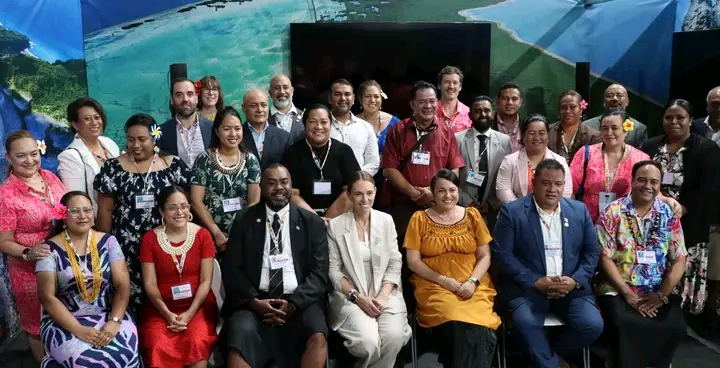The spirit of the Pacific — its mana, unity and resilience — resonated through the halls of the Thirtieth Conference of Parties (COP30) under the United Nations Framework Convention on Climate Change (UNFCCC) in Belém, Brazil early this week.
The ceremony began with a powerful karanga (ceremonial call) from Aotearoa, New Zealand, welcoming Pacific leaders, government officials, NGOs, academics, and partners to their “home away from home” for the next two weeks.
The call paid tribute to the Indigenous peoples of Belém and celebrated the deep oceanic connections that bind Pacific nations.
Now in its sixth year, the Moana Blue Pacific Pavilion has become a cornerstone of Pacific representation at the global climate talks, providing a dedicated space for island nations to gather, strategize and amplify their collective voice on climate action.
Opening the ceremony, Hon. Dr Maina Talia, Tuvalu’s Minister of Home Affairs, Climate Change and Environment and current Chair of the Pacific Small Island Developing States (PSIDS), described the Pavilion as a powerful reminder of home and identity.
“The Moana Blue Pacific Pavilion is our home away from home. It is where we feel connected to our people while representing our nations so far from our island homes,” he said.
“We have arrived in the heart of the Amazon with an opportunity to showcase our region and share with the world our priorities from the frontline of the climate crisis.”
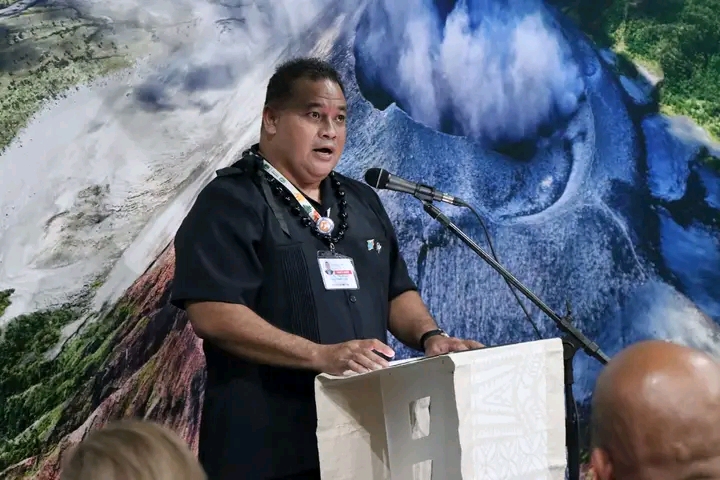
Australia’s Assistant Minister for Climate Change and Energy, Hon. Joshua Wilson, echoed the sentiment, praising Pacific leadership for its unity and compassion.
“Pacific climate leadership stands out because it leads with heart, strength and unity — qualities the world needs now more than ever,” he said, reaffirming Australia’s continued support for the Pavilion alongside New Zealand.
The Moana Blue Pacific Pavilion is a collaborative initiative by the Governments of Australia and New Zealand, coordinated by the Secretariat of the Pacific Regional Environment Programme (SPREP).
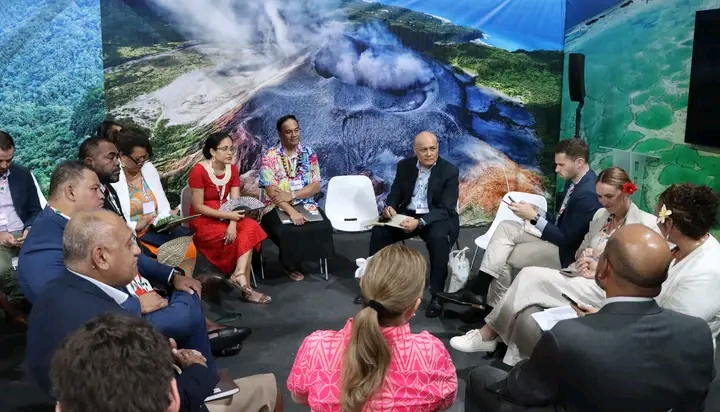
It will host over 75 side events throughout COP30, providing vital space for Pacific delegates to engage with global partners and push for climate action.
Head of Delegation and Chief Negotiator for New Zealand, Mr Todd Croad, described the Pavilion as “one of the most vibrant and powerful spaces at every COP,” crediting the strength of Pacific peoples for its impact.
SPREP’s Director of Climate Change Resilience, Ms Tagaloa Cooper, reflected on the Pavilion’s growth since its humble beginnings at COP24, calling it “a testament to Pacific resilience to adapt and progress.”
She extended SPREP’s gratitude to the Governments of New Zealand and Australia for their ongoing partnership and trust.
Representing the Solomon Islands at the Pavilion, Mr Thaddeus Siota, Director of the Climate Change Division, delivered a statement on behalf of the Minister for Environment, Climate Change, Disaster Management and Meteorology (MECDM), Hon. Polycarp Paea.
Mr Siota reaffirmed the Pacific’s united call for climate finance systems that are “owned, managed, and led by the Pacific.”
He highlighted the Pacific Resilience Facility (PRF) as a practical, regionally driven mechanism designed to empower communities and reduce dependency on external donors.
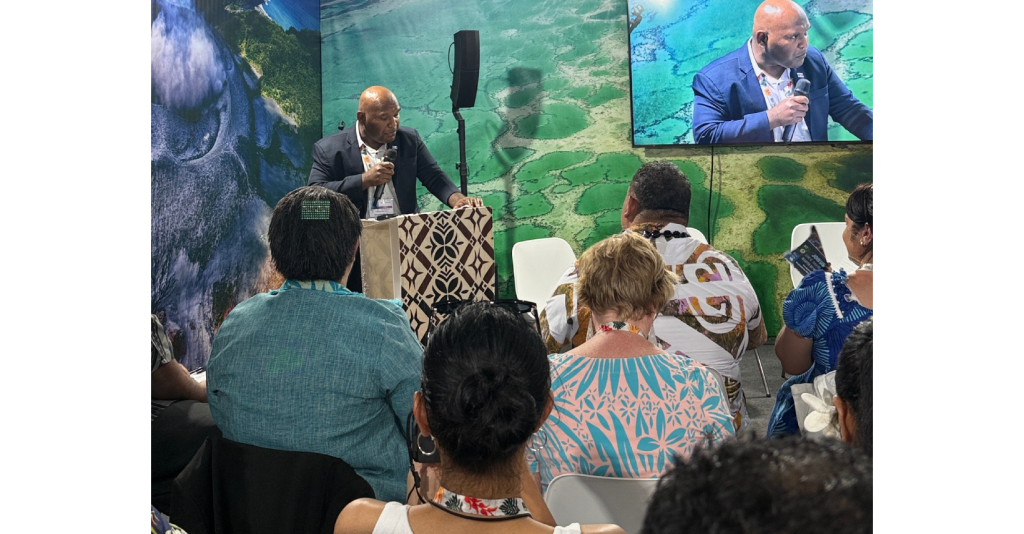
“The PRF is our answer to the challenge of climate finance. It represents a shift from dependency to ownership, from charity to investment,” he said.
“This is how we ensure that climate finance truly works for us in the Pacific, without compromising our governance and accountability.”
The PRF, which will be headquartered in Palau, aims to directly channel funds to local governments and communities to build resilience, protect ecosystems, and strengthen climate adaptation.
So far, the facility has received US$167 million in pledges, with a target of US$500 million by 2026.
Mr Siota said the first call for project proposals is expected around late 2025 or early 2026, with a three-year pilot phase to follow.
“The Pacific Resilience Facility is not just a fund — it is a long-term commitment to our survival, our sovereignty, and our shared future,” he added.
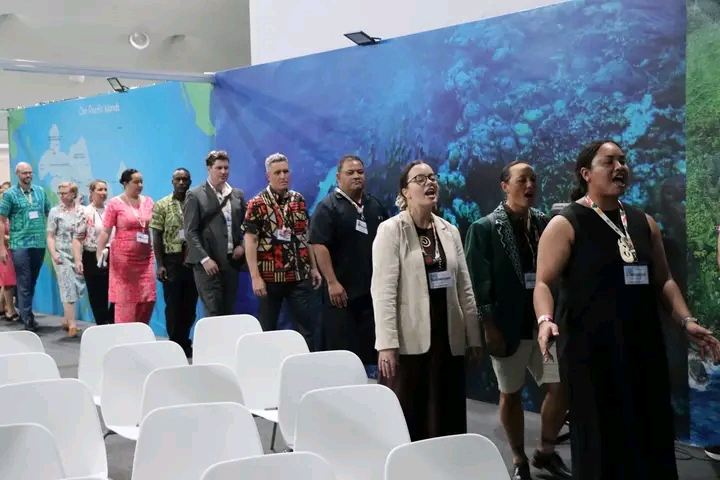
He also acknowledged the commitment of Pacific nations and praised Australia’s plan to host COP31 in partnership with the Pacific — a move he said would “amplify our voice and showcase Pacific-led solutions.”
The event ended in a powerful performance of This Is Our Home, featuring Pacific artists whose music reflected the struggles and hopes of climate-affected communities.
The opening of the Moana Blue Pacific Pavilion reaffirmed the Pacific’s unity, resilience and leadership in driving global climate action.
This story was produced as part of the 2025 Virtual Climate Change Media Partnership, a journalism fellowship organized by Internews’ Earth Journalism Network and the Stanley Center for Peace and Security.
By ULUTAH GINA
Solomon Star, Gizo
Photo captions: All the Pacific Champions and leaders gathered at the COP30 Belem in Brazil. Photo credit: EJN.

